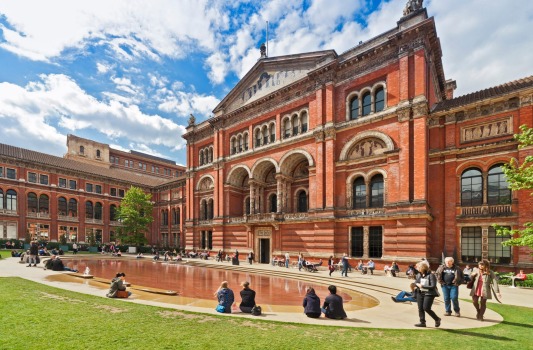The day after Ireland’s recent abortion referendum, Brenda Malone woke early, walked to her car and took a stepladder and some wire-cutters out of the trunk.
Then she started climbing lamp posts and cutting down campaign posters. The first one had a picture of a fetus on it, with the words “Don’t repeal me”.
Malone may have looked like an activist claiming mementos of the referendum or a protester making a final act of defiance after Ireland’s vote to rescind the constitution’s ban on abortion. But Malone had different reasons: she is a curator at the National Museum of Ireland and is working to preserve the posters.
Leontine Meijer-van Mensch, the deputy director of the Jewish Museum Berlin, said in a telephone interview she was “intrigued by the rapid-response approach of the V&A”. She said her museum had followed suit and had begun acquiring objects that figured prominently in current affairs.
In April, Meijer-van Mensch said she had tried to obtain the trophy for album of the year that was given to two rappers at Germany’s Echo Music Awards. The accolade prompted an outcry because some of the musicians’ lyrics were said to be anti-Semitic. Meijer-van Mensch said efforts to get hold of the trophy had been in vain.
Just days after the furore over the German music awards, two men wearing Jewish skullcaps, or kippas, were attacked in an affluent neighbourhood of Berlin by a man wielding a belt. One of the men, who is from Israel but not Jewish, said he had worn the skullcap to prove to a friend he could wear one in Berlin without being harassed.
The incident kicked off a debate about the extent of anti-Semitism in Germany, culminating in a demonstration in Berlin by kippa-wearing protesters. “I was intrigued by the enormous aftermath of this,” Meijer-van Mensch said. “I thought I needed to go to this with a photographer, and I needed to collect objects.”
She clambered up walls at the protest to obtain posters, and afterwards tracked down one of the men who was attacked to get his kippa for the museum. “It was actually quite fun — guerrilla collecting in a way. It’s very different to normal,” she said.
Read the article by Alex Marshall in the Australian Financial Review.

